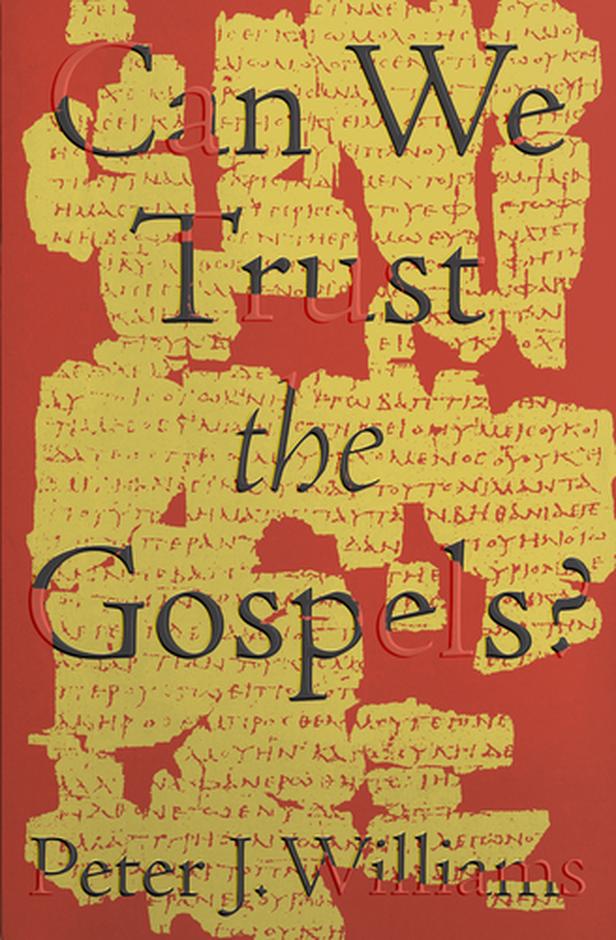
Can We Trust the Gospels? The Historical Basis for the Christian Faith
Many Christians are unaware of the unique nature of the Christian faith. Since most world religions are not based on historical events, and their beginnings cannot be anchored in any verifiable history, Christianity is unusual. And among those few religions that are based in historical events, the character of the founder, the manner in which the events supposedly happened, and the lack of verified supernatural signs makes Christianity completely unique.
When someone asks why you are a Christian, your answer shouldn’t be merely because of an experience or a perceived benefit, such as joy, peace or hope. Many adherents of other religions testify of experiences and benefits. No, your answer should be something along the lines of, “I believe that Jesus lived, died, and rose again, proving that he is the Son of God as the Bible reports.” That is, our faith should rest entirely in a verifiable historical event, because that is how Paul explained it in 1 Corinthians 15. If the resurrection didn’t happen then Christianity is not true. If it did, nothing can stand against it.
The historical reliability of the Bible matters. But how does the average Christian learn the historical facts about the Bible, especially the Gospels without having to wade through highly academic works?
A new book by Cambridge University professor, Peter Williams, provides a handy reference for the multitude of verifiable historical facts in the Gospels. Can We Trust the Gospels?(Crossway, 2018) is the distillation of many years of research in New Testament studies by one of the foremost scholars in the world. This little volume of 160 pages will amaze the reader with details he has never noticed before in the New Testament. In addition to explaining the testimony about Jesus from non-Christian sources, Williams displays the many ways in which the Gospels demonstrate that they could not have been written later than the first century in another part of the Roman Empire.
Although we live in an age when we have easy access to advance information about anywhere we go, we still tend to be surprised by aspects of geography and culture whenever we travel. Now imagine if someone asked you to write a story about events in a distant place you had never visited, and you were not allowed to use the Internet for research. Even with the wonderful libraries we have today, you would struggle to get all the information together to write a detailed story that fit what a local person would know. This is because of the many aspects of your destination you would have to get right, and getting only most of them right would not make a story sound authentic. You would have to investigate its architecture, culture, economics, geography, language, law, politics, religion, social stratification, weather, and much more. You would even need to ensure that the characters in your tale were given names that were plausible for the historical and geographical setting of your narrative. All this requires effort and is not easily done.
Right down to details of architecture, culture, economics, geography, language, law, politics, religion, social stratification, weather, and more, the Gospels do not shy away from a full-orbed, comprehensive description of life in first century Palestine surrounding the events on which they are focused. Even the mention of names in the Gospels reveals that only someone who lived in that society at that time would have known the common names of the day. Williams reminds us that there was no internet to look up details of the world of Jesus. Many of the details are never mentioned anywhere else in ancient literature, so knowledge of them would have had to have been from firsthand experience.
Knowledge of the location of tax collectors, local botany, unusual customs, local languages, the personalities of characters in the Gospel accounts, and many other particulars are shown to be still further evidence of the reliability of the NT. Williams presents a kind of cumulative case apologetic to show that criticism of the historical reliability of the Gospels is laughable. It is simply too far-fetched to argue that they were written later and in another place.
This little book will be a tremendous help to the average Christian who wants to strengthen her own faith in the Scriptures and a valuable resource to put in the hands of someone searching for answers. I highly recommend it!

Probably the weakest link in the Christian apologist’s argument for the historicity of the Resurrection is this: The view that the Gospels were written by eyewitnesses or by their close associates. This view is a minority position in modern New Testament scholarship. In reality, only evangelical and fundamentalist Protestant scholars hold this position. Even most Roman Catholic scholars, who very much believe in the bodily resurrection of Jesus, the supernatural, and miracles, reject the eyewitness/associate of eyewitness authorship of the Gospels. See this link:
https://lutherwasnotbornagaincom.wordpress.com/2016/11/08/majority-of-scholars-agree-the-gospels-were-not-written-by-eyewitnesses/
Imagine a defense attorney appearing in court, presenting a case using minority expert opinion as a defense. The prosecution would rip his case to shreds when they demonstrate to the court that the defense attorney’s “experts” are considered to be outliers…fringe